This article needs additional citations for verification .(June 2019) |
This is a list of the films produced in Mexico in 1944, in alphabetical order (see 1944 in film):
This article needs additional citations for verification .(June 2019) |
This is a list of the films produced in Mexico in 1944, in alphabetical order (see 1944 in film):

Sergei Mikhailovich Eisenstein was a Soviet film director, screenwriter, film editor and film theorist. He was a pioneer in the theory and practice of montage. He is noted in particular for his silent films Strike (1925), Battleship Potemkin (1925) and October (1928), as well as the historical epics Alexander Nevsky (1938) and Ivan the Terrible. In its 2012 decennial poll, the magazine Sight & Sound named his Battleship Potemkin the 11th-greatest film of all time.

The Three Caballeros is a 1944 American live-action and animated musical propaganda anthology film produced by Walt Disney and released by RKO Radio Pictures. The film premiered in Mexico City on December 21, 1944. It was released in the United States on February 3, 1945 and in the United Kingdom in March 1945. It marks the tenth anniversary of Donald Duck and plots an adventure through parts of Latin America, combining live-action and animation. This is the second of the six package films released by Walt Disney Productions in the 1940s, following Saludos Amigos (1942). It is also notable for being one of the first feature-length films to incorporate traditional animation with live-action actors.
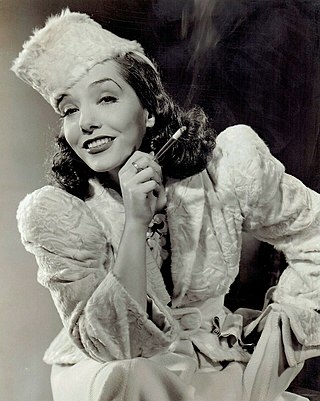
María Guadalupe Villalobos Vélez, known professionally as Lupe Vélez, was a Mexican actress, singer, and dancer during the Golden Age of Hollywood cinema.
"Bésame Mucho" is a bolero song written in 1932 by Mexican songwriter Consuelo Velázquez. It is one of the most popular songs of the 20th century and one of the most important songs in the history of Latin music. It was recognized in 1999 as the most recorded and covered song in Spanish of all time. Famous versions were sung by Trio Los Panchos and female vocalist Gigliola Cinquetti in 1968, and by Dalida in 1976. English lyrics to it were written by Sunny Skylar. It inspired the cult indian song, Yeh Samaa Samaa Hai Pyar Ka, sung by Lata Mangeshkar in the film Jab Jab Phool Khile

Maria Antonieta Pons was a Cuban-born Mexican film actress and dancer. She was the first actress in the Rumberas films in the 1940s and 1950s, in the Golden Age of Mexican cinema. The Rumberas film genre offered a societal perspective on Mexico during the 40s-50s. It delved into the lives of women deemed as sinners or prostitutes, challenging the prevailing moral and social norms of their era.

Pedro Gregorio Armendáriz Hastings was a Mexican-American film actor who made films in both Mexico and the United States. With Dolores del Río and María Félix, he was one of the best-known Latin American movie stars of the 1940s and 1950s.
Manuel "Manolo" Noriega, was a Spanish-born Mexican stage and film actor, screenwriter, and film director.

Leon Errol was an Australian-American comedian and actor in the United States, popular in the first half of the 20th century for his appearances in vaudeville, on Broadway, and in films.
John Wilkinson English was a British film editor and film director. He is most famous for the film serials he co-directed with William Witney for Republic Pictures such as Zorro's Fighting Legion and Drums of Fu Manchu.

Federico Arturo Guízar Tolentino, known professionally as Tito Guízar, was a Mexican singer and actor. Along with Dolores del Río, Ramón Novarro and Lupe Vélez, as well as José Mojica, Guízar was among the few Mexicans who made history in the early years of Hollywood.

Mexican Hayride is a musical with a book by Herbert Fields and Dorothy Fields and music and lyrics by Cole Porter. The show opened on Broadway in 1944.

Arturo García Rodríguez, known professionally as Arturo de Córdova, was a Mexican actor who appeared in over a hundred films.
Leslie Goodwins was an English film director and screenwriter. He directed nearly 100 films between 1926 and 1967, notably 27 features and shorts with Leon Errol, including the Mexican Spitfire series. His 1936 film Dummy Ache was nominated for an Academy Award in 1936 for Best Short Subject (Two-Reel). Dummy Ache was preserved by the Academy Film Archive and the Library of Congress in 2013. His 1937 film Should Wives Work? was also nominated for an Academy Award in the same category. He was born in London, England and he died in Hollywood, California.
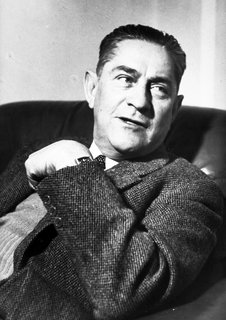
Fernando de Fuentes Carrau was a Mexican film director, considered a pioneer in the film industry worldwide. He is perhaps best known for directing the films El prisionero trece, El compadre Mendoza, and Vámonos con Pancho Villa, all part of his Revolution Trilogy on the Mexican Revolution.
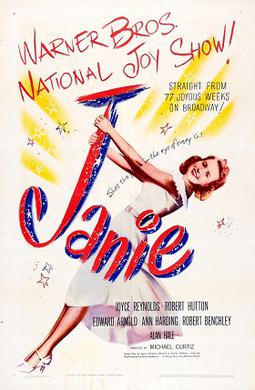
Janie is a 1944 film directed by Michael Curtiz, based on a 1942 Broadway play by Josephine Bentham and Herschel V. Williams Jr. The play was adapted from Bentham's 1940 novel by the same name.
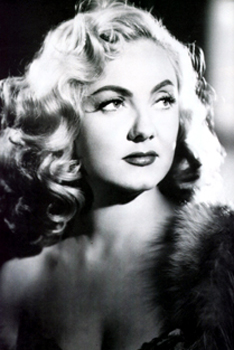
Emilia Guiú Estivella was a Spanish-Mexican actress who appeared mainly in Mexican films, particularly in the 1940s and 1950s in the Golden Age of Mexican cinema. She made over 60 film appearances between 1943 and 2000 and typically played villain roles and "femme fatale". She also made a number of theatrical appearances.
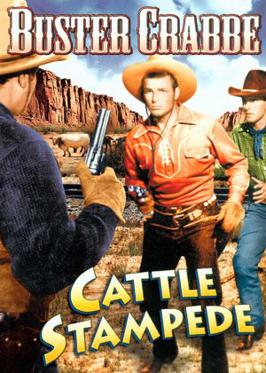
Cattle Stampede is a 1943 American Producers Releasing Corporation Western film of the "Billy the Kid" series directed by Sam Newfield.
René Cardona was a Mexican director, actor, producer, screenwriter, and film editor, who was prominent during part of the Golden Age of Mexican cinema.

Frontier Outlaws is a 1944 American Western film directed by Sam Newfield shot at the Corriganville Movie Ranch. It was the second film in Producers Releasing Corporation's Billy the Kid film series where Crabbe changed his name to "Billy Carson".